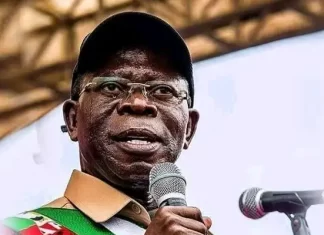Banks have recorded near-zero foreign currency deposit inflow from high networth individuals indicating that their domiciliary account customers are staying cautious on the reversal of foreign currency deposit ban by Central Bank of Nigeria (CBN) early last week.
The development has sustained scarcity of foreign exchange in the market as well as the high exchange rate above N300/$1
CBN had hoped to buoy foreign currency supply from independent sources by de-freezing of foreign currency deposits, and hence help douse the pressure on exchange rate which had accentuated last week.
 Investigations last weekend, however, showed that only low-end domiciliary account holders responded to the policy with a few dollar deposits, a situation which prompted some of the banks to send out marketing sensitization to their customers to come forward and deposit their dollars with them.
Investigations last weekend, however, showed that only low-end domiciliary account holders responded to the policy with a few dollar deposits, a situation which prompted some of the banks to send out marketing sensitization to their customers to come forward and deposit their dollars with them.
Some of the bankers expressed surprise that more dollars did not come in during the week contrary to the expectations that customers who had inundated them with inquiry on how to deposit their foreign currencies did not turn up in response to CBN’s directive.
CBN, mid last year, barred banks from accepting foreign currency deposits from their local customers, a development that caught most of the customers napping, with foreign currency cash in their homes, with the attendant dangers.
Last week, CBN reversed itself, allowing the deposits but it appeared the domiciliary account depositors have found alternative uses.
Some of the bankers said that some of the depositors now trade or invest their dollar cash with Bureau de Changes (BDCs), where exchange rates and returns on investments are far higher, not minding the risks involved.
However, they also explained that some of the bigger volume customers are finding options with foreign bank accounts.
Consequently, the expected inflow of dollars into the domiciliary accounts with local banks did not come as much as was anticipated.
But some financial sector observers said the high volume dollar account customers were skeptical about the policy reversal which was silent on withdrawals.
The CBN foreign currency deposit restriction policies had come with imposition of limits on foreign currency withdrawals, but the unbanning of deposits last week was silent on withdrawals.
This gap, according to the analysts, may have short-circuited the expected positive response from most domiciliary account holders especially the high-end customers.
Commenting on the policy reversal, financial sector analysts at Afrinvest Group said, “CBN reneged on its earlier policy, announcing its decision to allow commercial banks accept foreign currency deposits but was not clear on whether foreign currency transfers or withdrawals can be made.”
They are also worried that despite the huge crash in value of the Naira against the world’s major currencies, CBN maintained its official rate at N197/$1 thereby creating wider parallel market margin of about 50 per cent, the highest so far in the history of Nigeria’s currency market.
Consequently, Afrinvest stated that “this calls for a quick response of the monetary authority given the huge margin between the official and parallel market rates.
“With foreign reserves at lows of $28.7 billion and oil prices at $29.47 per barrel, a compelling argument to devalue the Naira at the next Monetary Policy Committee (MPC) meeting cannot be jettisoned”, it stated.
Analysts at Cowry Asset Management, a Lagos-based investment house, expressed discomfort at the policy reversal which they believe fell short of capturing other factors that would have made it achieve desired results. They stated, “We are worried that the policies of CBN on the foreign exchange management seem to be made in silos as all the ramifications didn’t seem to have been factored in before the announcements, hence the frequent reversals and consequent loss of confidence by the business and investing public.
“We will advice the Monetary authorities to articulate an integrated policy on foreign exchange management taking into consideration the fiscal policy objectives of the Federal Government.
“We also think that CBN being the recipient and owner of 90% of the country’s foreign exchange earnings must evolve a channel for injecting dollar cash liquidity into the system, to meet legitimate needs”.
Concluding its prognosis of the foreign currency market situation, Cowry Assets analysts stated, “This week, we expect further depreciation of the Naira at the alternative market segments on aggravated supply scarcity buoyed by the closure of CBN’s window to BDCs”.
-Vanguard












